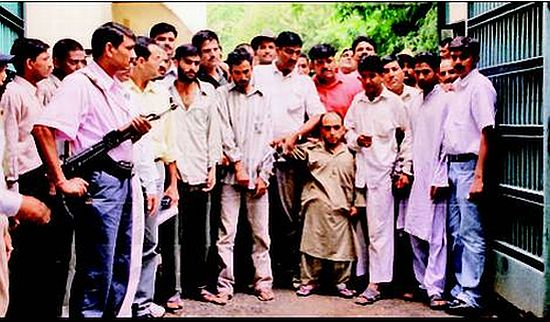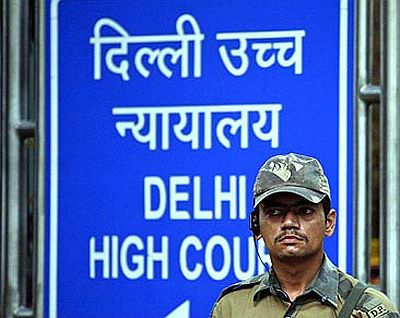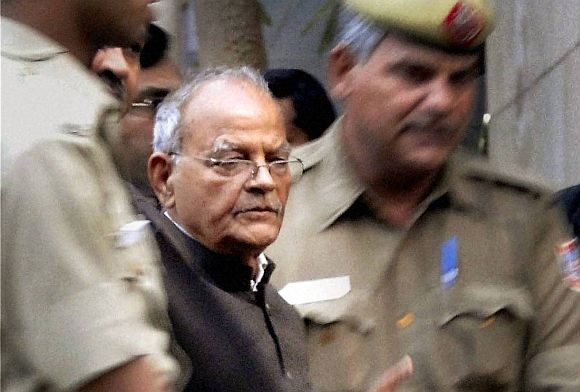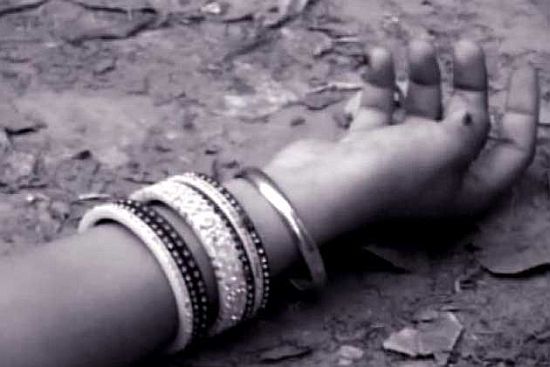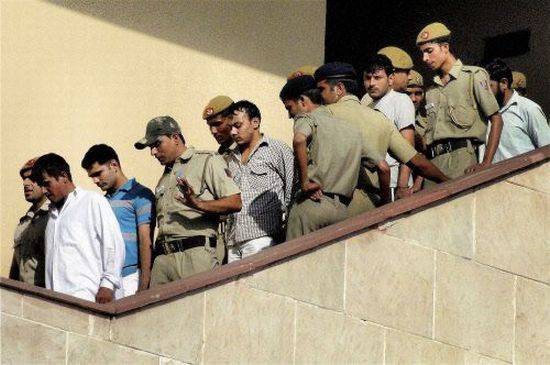 | « Back to article | Print this article |
When the law took its own course in 2011
Several cases related to scams and terror incidents of yesteryears reached their logical conclusion in 2011 which saw the conviction of veteran politician Sukh Ram besides confirmation of death sentence of Lashkar-e-Tayiba terrorist Mohd Arif in the 2000 Red Fort attack case.
The Supreme Court upheld the death penalty of Arif alias Ashfaq, saying the attack on the monument, which resulted in the killing of three army jawans, was an "arrogant" assault and "brazen attempt" by Pakistan "to overawe" India and wage war against it.
The terror cases which had hit the headlines in past and resulted in conviction included one involving a criminal plot to kidnap cricketers Sachin Tendulkar and Sourav Ganguly in 2002. The case resulted in award of life sentence to six HuJI militants, including three Pakistanis.
The trial court which found them guilty said the country cannot be allowed to become a "safe haven" for terrorists.
Click on NEXT to read further...
When the law took its own course in 2011
Besides this, another case under the stringent Prevention of Terrorism Act of the National Democratic Alliance-regime that resulted in successful prosecution, involved five Jaish-e-Mohammed men who had been charged with terror activities in the country.
Noor Mohammad Tantre, Faroz Ahmed Bhat, Pervaiz Ahmed Mir and two brothers Atiq-uz-Zama and Raees-uz-Zama, all hailing from Jammu and Kashmir, were awarded life terms by the court which described them as "merchants of death and destruction".
Click on NEXT to read further...
When the law took its own course in 2011
The year also saw the Delhi High Court upholding the life sentence to political activist Hari Singh for hijacking an Indian Airlines aircraft in March 1993.
The court, however, asked the government to consider suitably commuting Singh's sentence, saying that he had committed the crime "to make a political point."
Click on NEXT to read further...
When the law took its own course in 2011
With corruption cases like 2G scam, 2008 cash-for-vote case, CWG scam and Satyam accounting fraud undergoing adjudication in various courts, Sukh Ram found himself on the wrong side of the law.
A trial court first sentenced him to five years in jail in a 1996 graft case and later the Delhi High Court upheld his conviction and three-year jail term awarded in 2003 in another case arising out of the illegalities committed by 86-year-old Himachal Pradesh politician during his tenure as telecom minister in Centre in mid-nineties.
Click on NEXT to read further...
When the law took its own course in 2011
While terror and scams made headlines in the capital, the courts quietly dealt the cases involving various social evils like those of bride burning and honour killings with iron hand as the apex court on May 9 asked the subordinate courts to view such cases as "rarest of rare", fit for death penalty to convicts.
Though the apex court, in a case in hand, upheld the life sentence awarded to a man for killing his married daughter, allegedly entangled in an incestuous relationship with her cousin, it favoured inflicting capital punishment for honour killings.
"In our opinion honour killings, for whatever reason, come within the category of rarest of rare cases deserving death punishment. It is time to stamp out these barbaric, feudal practices which are a slur on our nation.
"This is necessary as a deterrent for such outrageous, uncivilised behaviour. All persons who are planning to perpetrate 'honour' killings should know that the gallows await them," the apex court had said.
Click on NEXT to read further...
When the law took its own course in 2011
Taking a cue from apex court judgement which favoured death sentence to honour killing convicts, a trial court in New Delhi awarded capital punishment to three members of a family, including the husband of a woman, killed for demanding transfer of a piece of land in her children's name.
In another such instance, five members of a family were sentenced to death by another trial court in a case in which a Shia Muslim girl's brother-in-law was murdered by her brothers and close relatives in the national capital for marrying a boy belonging to 'Sunni' sect, against the wishes of her family members.
The high court also sent across a stern message and awarded life term to a 95-year-old woman for burning her daughter-in-law alive along with her seven-month-old grandson in 1996.
The Supreme Court too upheld the death sentence given to a man, for burning to death his wife and three children after a domestic row, with the court saying that he wanted to dominate over his family and was of "dictatorial personality".
Click on NEXT to read further...
When the law took its own course in 2011
The Mirchpur Dalit killing case of Haryana, which was shifted to Delhi on an apex court order, resulted in conviction of 15 accused out of 98 by a trial court which awarded life sentence to three of them.
In the case of private hospital sweeper Bhura Singh, who had raped a nurse after gouging out her eye eight years ago and later proposed to marry the victim, the high court upheld the life sentence awarded to him.
The infamous Pushkin Chandra murder case too reached its logical conclusion with the Delhi High Court upholding the life sentence to two for killing their homosexual partners, including an UNDP officer.
The sensational Shivani Bhatnagar murder case too reached a crucial stage as the Delhi High Court acquitted IPS officer Ravi Kant Sharma while holding one person as guilty.
Click on MORE to read another feature...

